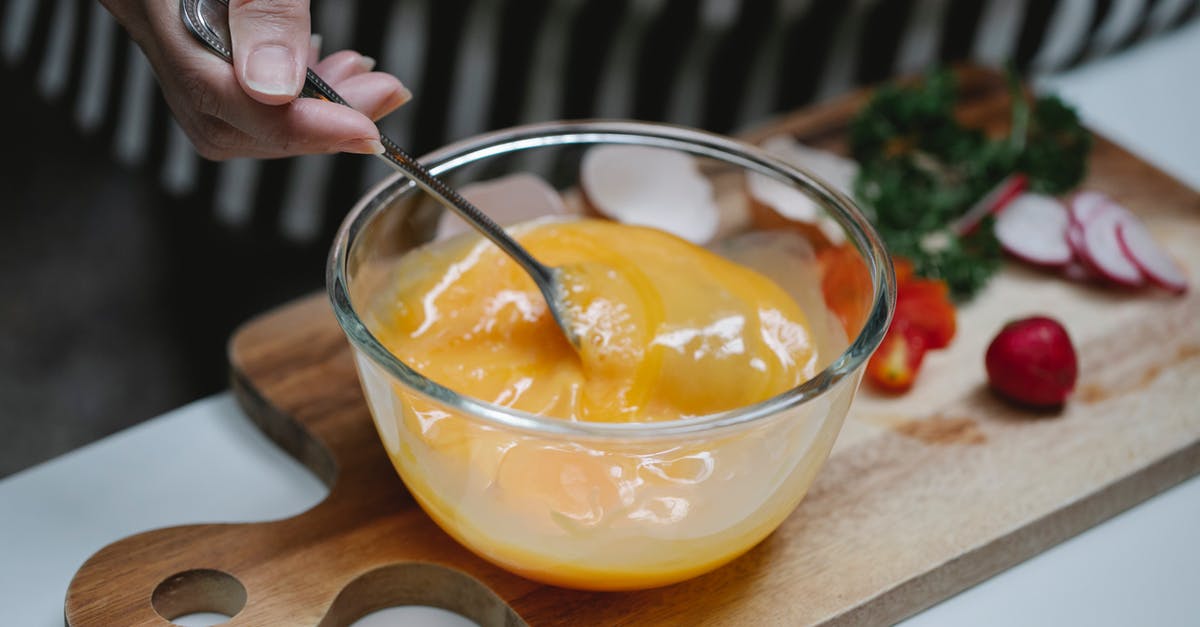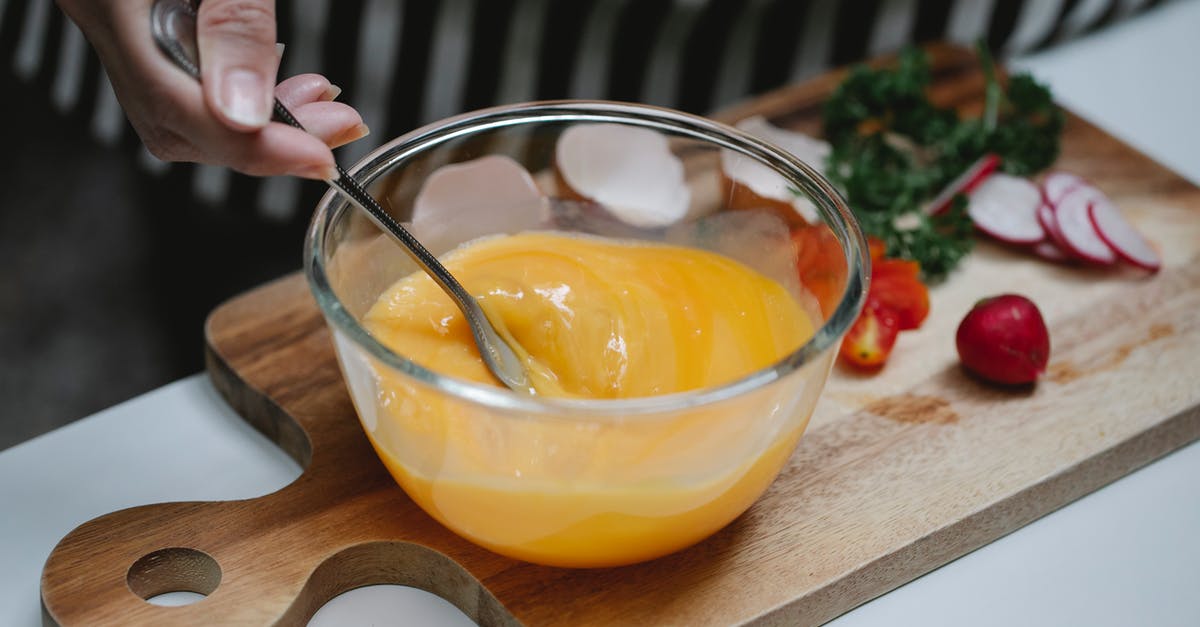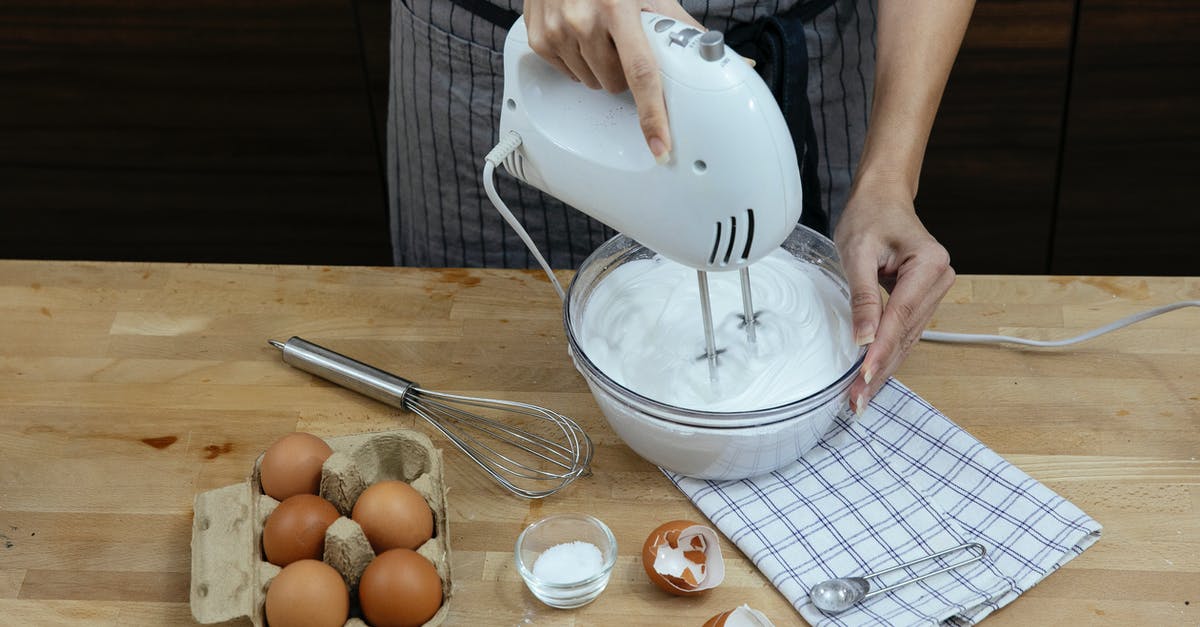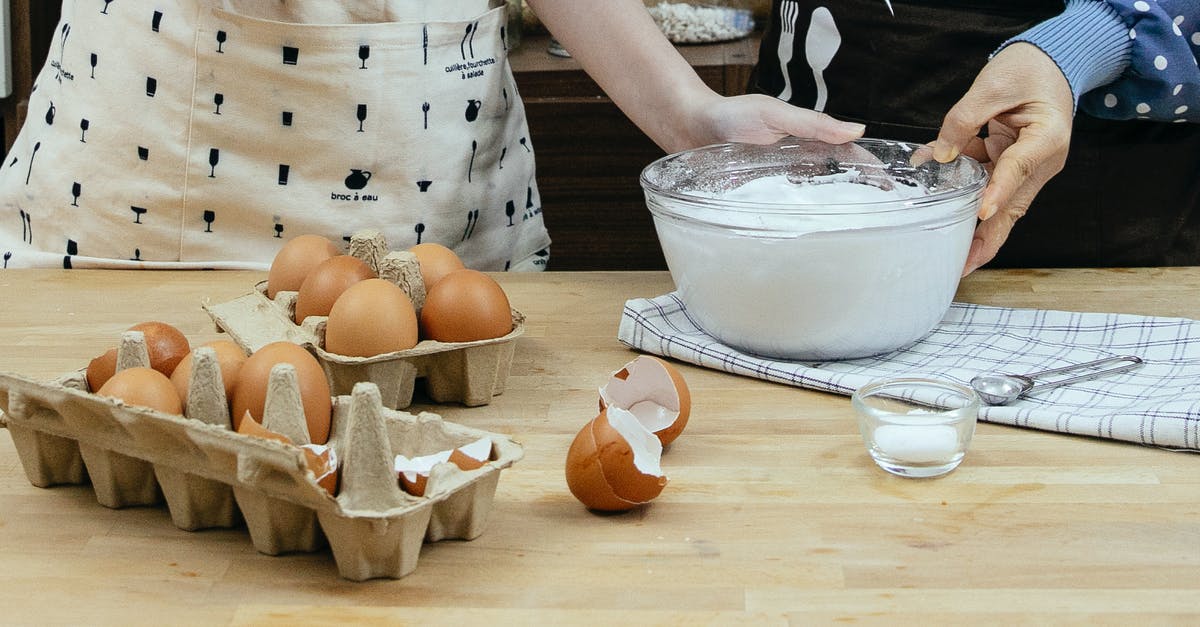Why or why not beat an egg before adding?

When adding an entire raw egg at the same point in a recipe (not separating the yolk and white), what determines whether it should first be beaten, or dropped in whole? I've seen some recipes call for a beaten egg; others, specifically a meatloaf and a couple of cookie doughs, emphasize to not beat the egg before adding it.
The closest I found in here after an extensive search was this, which addresses why to add a beaten egg after the rest of the ingredients are mixed together, but doesn't explain why or when to beat it.
Why would a recipe say mix all ingredients, then add egg and mix again?
Other than the obvious mixing of yolk and white, how does beating it affect the proteins and other elements, and how do those effects impact other ingredients and cooking processes?
Best Answer
This previous question (and the accepted answer) are related to the food science raised in the final part of the question. Some of these chemical processes are much easier and/or quicker to accomplish when the egg is beaten by itself than after it may be mixed in and diluted with other ingredients. These changes in the egg protein structure can affect the final texture or cooking properties of the eggs, such as time and temperature for coagulation. Changes to these chemical properties can thus affect the final texture and cooking properties of the thing they are added to.
And in some cases where these effects are undesirable, recipes may specify that eggs not be beaten before adding. As to the specific examples you give:
Meatloaf requires eggs to be used as a binder. Heavily beating them will often make them "thinner" and runnier, as well as perhaps decreasing some of their binding tendencies. (The whites by themselves tend to be a better binder than yolks, so pre-mixing them may inhibit that effect a bit.)
For cookies, the answer may depend on the specific recipe, but often recipes that call for unbeaten eggs involve adding eggs one-at-a-time. If people beat the eggs ahead of time, they are more likely to combine them, which makes it more difficult to then do the staggered additions. (So, it may be as simple as making it easier to follow the recipe, particularly in well-mixed batters where the eggs will be thoroughly mixed anyway.) If I had to speculate on a food-science reason, it could be because egg whites and egg yolks do different things in cookies: whites tend to give rising power, provide water for gluten hydration (which promotes structure) and provide lecithin which also binds and enhances structure, while yolks keep the eggs tender and rich. It may be that beating the eggs together hard before adding them could make it more difficult to achieve some of these effects, for example, trapping moisture and fat together in an emulsion, rather than encouraging the moisture to bind with the gluten for structural reasons, using the white's lecithin as an emulsifier to break up the yolk fats, etc., so the whites can't be as strong structurally and the yolks don't promote as much tenderness. (I don't think these effects will generally be that large, but in some recipes I imagine they can produce noticeable changes in the final cookies.)
As mentioned in other answers, beating also promotes a homogeneous mixture and aerates the eggs, which could be important in some cases for homogeneity or lightness in the final product. However, in some cases that specify "beaten" or "unbeaten," the chemical changes in beating involving denaturing of proteins, emulsifying the various components and binding some of them together, etc. may play a greater role in a decision to beat or not to beat.
Pictures about "Why or why not beat an egg before adding?"



Quick Answer about "Why or why not beat an egg before adding?"
If you add in the eggs whole, it will require you to mix the batter more to incorporate the eggs in and break them up. But if you beat the eggs before adding them to the batter, it will not take very much time at all to mix them in, and you will be less likely to over beat the batter you are making.Is it better to beat eggs before adding to cake mix?
It is preferable to underbeat egg whites slightly than to overbeat them. Overbeaten egg whites look lumpy and dull and form big white clumps if you try to fold them into another mixture. Beating whole eggs or egg yolks for chiffon and sponge cakes is even easier than beating egg whites.What is the purpose of beating an egg prior to adding it to a recipe?
When egg whites are beaten they form little balloons of air that expand when heated. The trapped air in the stiff whites lifts, or at least prevents the flattening of, the mixture as it cooks. The right equipment is important. The most valuable is an unlined copper bowl.Why should eggs be beaten?
The goal with slightly beaten eggs is simply to ensure that the white and yolk do not remain separate. In baking, you will often be further mixing the dough or batter so you won't need to spend much time beating the eggs.Should you beat eggs before adding to brownie mix?
The eggs and sugar should be beaten just enough to break up the eggs and slightly dissolve the sugar. You can do this by hand just with a fork. You don't need to whisk the eggs and sugar until they have increased in volume, as this can add too much air into the brownies and make them too cake-like.Whipping Egg Whites To Perfect Peaks
More answers regarding why or why not beat an egg before adding?
Answer 2
The main reason TO beat an egg before adding it is that the mixture to which you are adding is not going to be sufficiently mixed afterwards to homogenize the egg. That is, if you are adding the egg and then just "stirring gently", that's not going to be enough to beat the egg.
This would also be the reason NOT to beat the egg. In a few cases (such as some meatloaf/burger recipes) cooks want the yolk and egg to remain mostly separate within the mixture. Again, this would be if you're adding an egg to a mixture which was not going to be stirred a lot afterwards.
Of course, the other reason not to beat the egg would be to avoid dirtying another bowl and a whisk.
Answer 3
Adds air i.e. fluffs them, like you do before scrambling. This can affect the outcome of what you are baking/cooking.
Sources: Stack Exchange - This article follows the attribution requirements of Stack Exchange and is licensed under CC BY-SA 3.0.
Images: Klaus Nielsen, Klaus Nielsen, Katerina Holmes, Katerina Holmes
